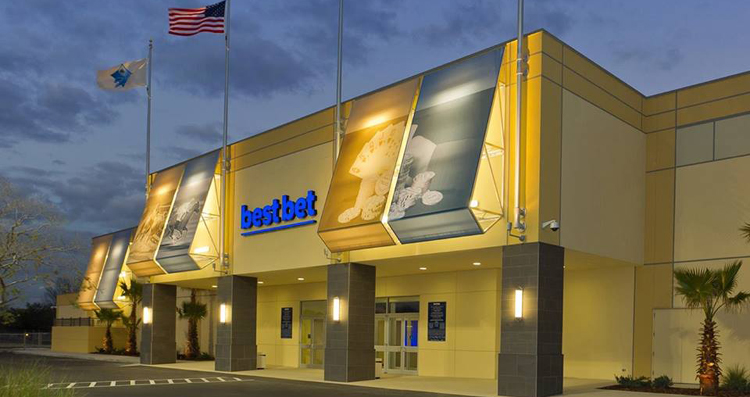In a decision that could have a ripple effect throughout the state of Florida, Judge Suzanne Van Wyk ruled on Monday that the player banked games offered by Jacksonville Kennel Club, Inc., also known as bestbet Jacksonville, are illegal.
A “banked” game is defined by Florida state law as one where the “house is a participant in the game, taking on players, paying winners, and collecting from losers or in which the card room establishes a bank against which participants play.” Judge Wyk ruled that the games that the Kennel Club has been offering since September 2015 violate the state law. Bestbet is authorized to operate games where players compete against each other, or “unbanked” games, just as long as they’re not competing against the house. The administrative judge ruled that “as currently operated, the designated player is a player in name only.” The current system “does no more than establish a bank against which participants play.” As such, “the games cannot be allowed to continue to operate in the current manner,” as reported by Calvin Ayre.
Earlier this year, the state began an investigation into the manner in which poker games were being run at the bestbet cardroom in Jacksonville. A nine-page complaint accused the operators of bestbet, Jacksonville Kennel Club Inc, of operating banked card games at multiple tables. Nine of the counts against the poker room state that on December 7, 2015, bestbet was operating “banking game or game not specifically authorized by Section 849.086, Florida Statutes” according to a First Coast News report. The Jacksonville Kennel Club was fined $4,500 by Judge Wyk, but dismissed charges against the poker room that claimed unlicensed employees were working there.
State gambling regulators gave the green light to card rooms to offer player-banked or designated player games more than four years ago. The games include a form of three-card poker, which closely resembles casino-style card games but are played among gamblers rather than the house. State regulators contend that the issue isn’t over the legality of the games themselves, but that the way in which they’re being run is too much like the “banked” games that with the exception of the casinos operated by the Seminole Tribe are illegal in Florida.
The argument by pari-mutuel operators is that the games, which the regulators okayed years ago and are extremely popular at pari-mutuel facilities in the state, that it wasn’t until a proposed $3 billion gambling compact was signed by the Seminole Tribe and Governor Rick Scott in December that they took a more critical view of the games. Regulators are accused by the operators, who are paid a percentage of what is bet on games, of changing the rules only months after their employees were trained how to properly play the games. Player-banked card games are offered in 10 Florida card rooms and as much as 20 percent of their revenue comes from the games. Regulators claim that the designated players, never actually touch the cards and that they are actually employed by unlicensed, third-party companies, which was not envisioned when the games were first approved by the state, according to CBS Miami.
A five-year deal between the Seminoles and the state of Florida, that gave the tribe exclusive rights to operate banked card games, expired last summer. The battle over the games is now being waged in federal court. Allegations by the tribe include that the pari-mutuels throughout the state which run designated-player games are in breach of the agreement.



